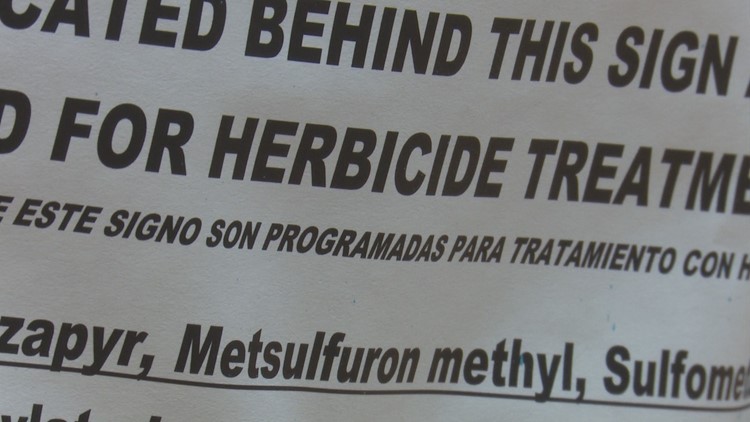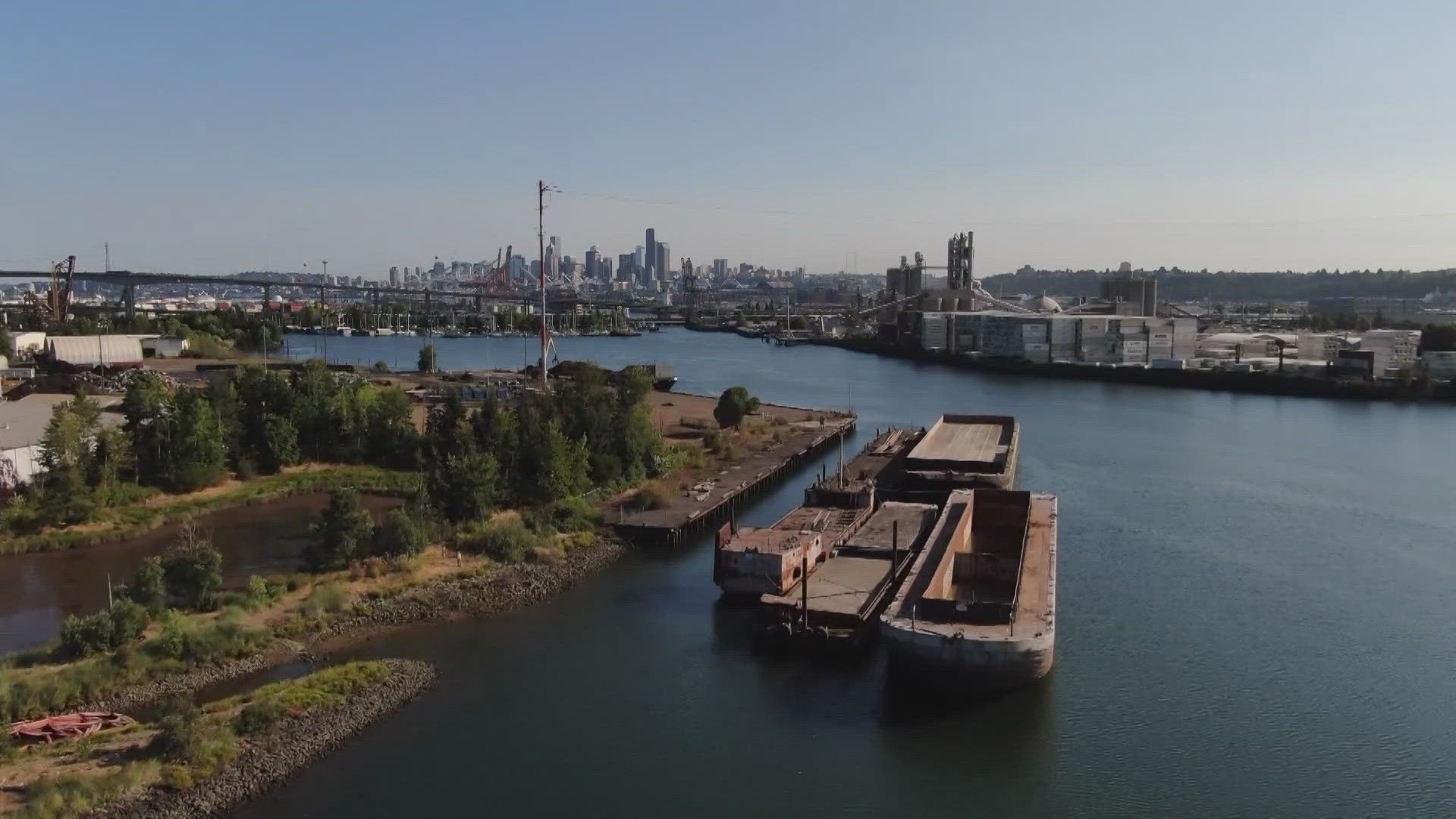Two separate communities in two different places are trying to stop large corporate tree farms from doing the same thing: spraying Roundup and other herbicides over large plots of logged land.
One site is near Lake Cavanaugh in Skagit County, where a small paper sign bordered by blue tape sticks to the side of a tree stump, alerting neighbors that the spraying will happen sometime in the next two months.
"We want to know what's happening to our community. Even though we're a small community, we're a community," Debbie Stinson said.
Stinson and others are concerned about the chemicals, but also that Weyerhaeuser didn't do more to notify them.
"To have these chemicals be sprayed in such a broad area, I feel out of control," Kelsie Pettersson said.
"I've lived through DDT and cigarettes being fine. I cannot trust they will tell us the truth," Joy Atwood added.
The Lake Cavanaugh community has started an online petition to stop the spaying.
Roundup made headlines recently after California jurors awarded a man $289 million after determining that Monsanto's popular product caused his terminal cancer.
"It would be nice if Weyerhaeuser could give us absolute reassurance that the chemicals they're using are safe for people, animals, and wildlife. If there is absolute proof that they are safe, then show us. Prove it," Roberta Croteau said.
The spraying must follow EPA guidelines, but some research questions whether those standards are outdated.
Weyerhaeuser sent KING the following statement:
"Herbicides are a highly regulated and important tool we use to regrow our forests and help our young trees thrive. We follow all federal and state laws and label requirements, including leaving buffer zones to protect water sources and adhering to strict application standards. We are serious about our responsibility as environmental stewards, and we take every precaution to protect the environment we all share."
The other battle waged against herbicides is occurring in Hansville, where the newly formed Kitsap Environmental Coalition successfully rallied enough money and petition signatures to pressure Pope Resources into delaying their planned spraying. They're holding a community meeting on September 10.
At the time of this writing, the days-old petition had already gained nearly 1,700 signatures.
"We heard loud and clear the community's concerns about our proposed application," Pope Resources Director of Administration and Corporate Affairs told the Kitsap Sun. "As members of this community, we thought it would be best to take a pause and have a thoughtful and direct conversation with our neighbors before any potential application."
Scientific papers discussing the use of Roundup and its effects on the environment and human health have come to different conclusions. Monsanto continues to claim that when used according to the label, the product is safe and non-carcinogenic. But other research has determined that more studies should look closely at the synergistic effects of glyphosate, Roundup's main ingredient, and the other chemicals used, especially when used in combination with other herbicides.
The U.S. Geological Survey published a comprehensive nine-year study in 2014 that showed glyphosate is widespread in the environment.
"Glyphosate by itself is no more than slightly toxic to birds, fish, and aquatic invertebrates; and exhibits relatively low oral and dermal acute toxicity to humans," the report reads. "Recent studies, however, have documented the potential for other health effects. Many studies indicate that commercial glyphosate formulations can be more toxic than pure glyphosate due to the toxicity and/or action of additives, such as surfactants (detergents)."
For residents in both areas, there's enough cause for concern that they want to be included in the decision about what happens.
"I have no faith in the company anymore if they are not going to take their values seriously and come out to the community and have a conversation with us about how what they're doing is impacting our health," Lake Cavanaugh resident Jami Slaton said.
To read more scientific perspectives on RoundUp and herbicides, visit the following sites:



